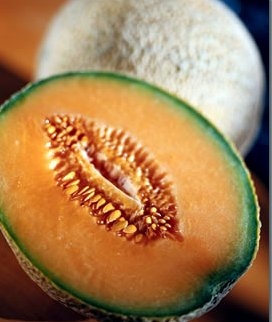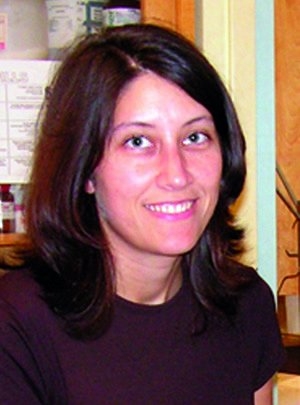Unripe cantaloupe? Could be, the electronic nose knows
You know how it works: You stand in the grocery aisle, surreptitiously sniffing the cantaloupes, hoping your nose will lead you to a nice, ripe selection. But when you slice it open in your kitchen, it’s just not as ripe as you had hoped. Lucky for you (and me), UC Davis Department of Plant Sciences Assistant Professor Florence Negre-Zakharov and her team may have found a way to make imperfectly ripe fruit a thing of the past.
"We are involved in a project geared towards developing rapid methods to evaluate ripeness and flavor of fruits," explained Negre-Zakharov, who authored a paper on the method published in the March 30 edition of the Journal of Visualized Experiments (JoVE). "We evaluated an electronic nose to see if it can differentiate maturity of fruit, specifically melons. The goal is to develop a tool that can be used post-harvest to better evaluate produce, and develop better breeds."
When fruit ripens, it develops a characteristic volatile blend, indicating its maturity. Traditionally, the gold-standard of evaluating these volatiles has been gas chromatography, but it takes up to an hour to analyze a single sample, which makes it impractical to use outside the lab. Negre-Zakharov’s team wanted to determine if the much cruder — but much faster — electronic nose was able to determine if the melon they used in the experiment were ripe. It was.
"It’s quite encouraging technology for the purposes of determining maturity," she said.
"It's very impressive that the electronic nose system can do a type of gas chromatography in about a minute,” said JoVE science editor Zhao Chen. “Ultra-fast, indeed. Also, the sample preparation is as easy as making a smoothie at home. Such a user-friendly system could greatly help analysis efficiency in this field. Given the popularity of JoVE video-articles, I expect many researchers will know and adopt this method in their own research."
As a next step, the team is testing the electronic nose out in the field to see if it can still determine fruit maturity despite interference from all the background smells like soil and farm air. They hope to have results from those tests soon.
You can access a video of the study here.


